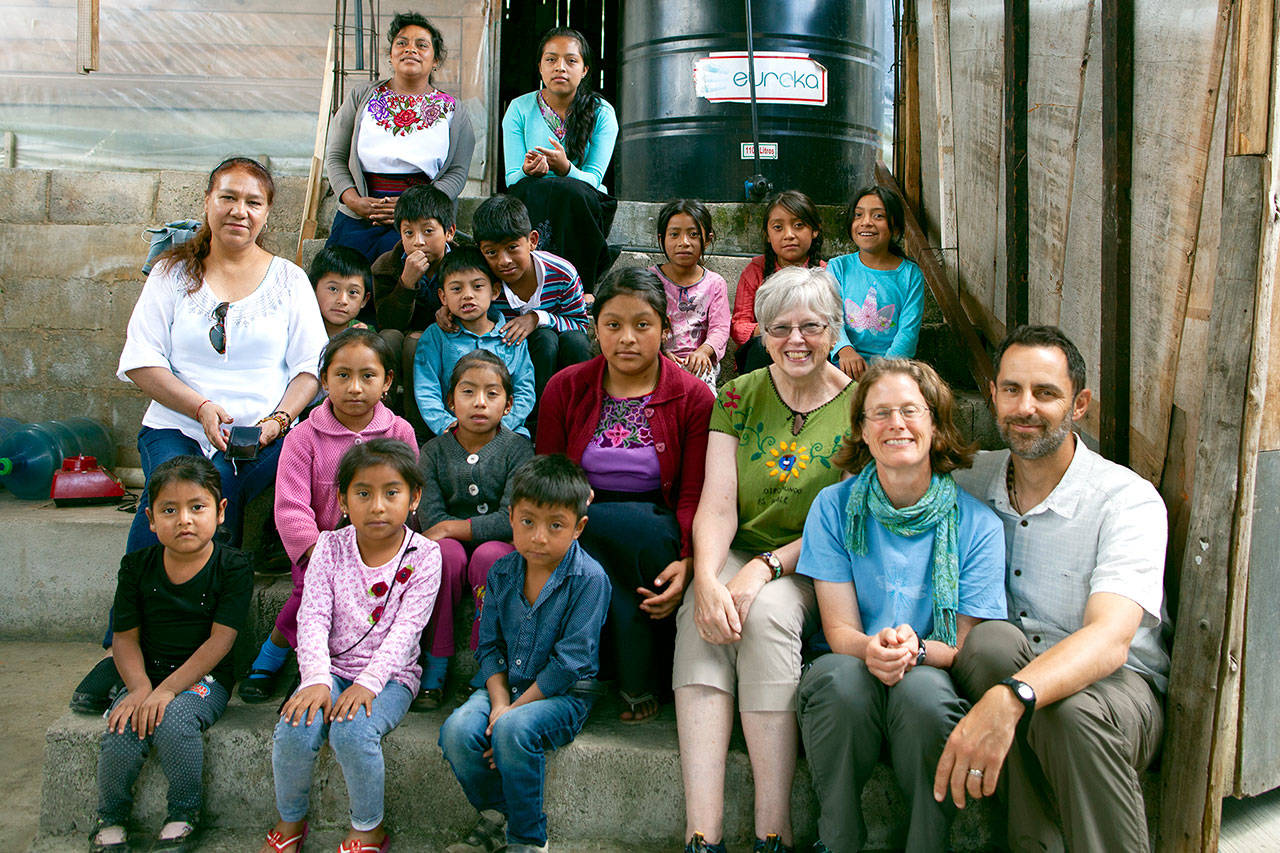SEQUIM — “Today I say to you, thank you so much.
“This day means so much to me. I finished my professional educational career, and that represents a dream made into reality.”
So wrote Virginia on the day she graduated university with a degree in computer science. A woman of 40, she grew up in Chiapas, Mexico’s southernmost state, where she continues to live and work.
Virginia is among the dozens of girls and women who have earned scholarships from the Mujeres de Maiz Opportunity Foundation, a nonprofit born in Sequim.
Without help funding their education, the women would otherwise leave school after fifth grade, or earlier.
Virginia’s is one of the letters of thanks to be read this Saturday at Mujeres’ celebration of Mexican culture, art and possibility.
The 13th annual benefit is switched up, with a new location and time.
The afternoon gathering includes a Day of the Dead program, two silent auctions of art, clothing and handicrafts from Chiapas, and craft-painting of Mexican tin holiday ornaments.
Quesadillas, along with the event’s traditional Mexican wedding cookies, tea and Raven’s Brew coffee will be on tap; beer and wine will be available too during the party from 3:30 p.m. to 6 p.m. at the Pioneer Park clubhouse, 387 E. Washington St., in Sequim.
The multimedia program will run from 4:45 p.m. to 5:15 p.m., with the silent auction bidding, food and drink before and after that.
Admission is a suggested $12 donation to support Mujeres’ partnerships with the communities in deep-southern Mexico. For more information, see www.mujeresdemaizof.org or email mujeres@olypen.com.
Longtime Sequim resident Judith Pasco started Mujeres de Maiz in 2006; since then she’s traveled many times, along with board members, to Chiapas.
This past summer’s trip was “terrific,” Pasco said, for several reasons.
Support of Mujeres’ Sequim events — the November benefit, a Mexican breakfast in March, the Men with Guitars concert in May — helps fund scholarships to secondary school and college for girls and women as well as weekend enrichment programs for children in the villages of Zinacantan, Crucero, Las Ollas and Huixtan.
Two who recently joined the Mujeres board, Beth Fetrow and John Boetsch, flew to Chiapas with Pasco in July. The people, with their traditional art, textiles, cuisine and fierce devotion to their homeland, wowed the two Port Angeles residents.
“Mujeres provides opportunities for indigenous women to advance themselves, and give back to their communities,” the couple writes in the organization’s fall newsletter. The emphasis is on partnership; self-determination is key, Fetrow and Boetsch note.
One day during the trip, Pasco found herself in a situation. At the Mujeres de Maiz Center in San Cristobal, 22 adults and teenagers were prepared to take an English language workshop. The man scheduled to teach it hadn’t shown up.
So Pasco led the 90-minute class, exploring vocabulary and English expressions with the students, who had come from all over the region.
“We had a lot of fun with that,” she recalled.
It helped that Pasco is a retired schoolteacher, with 15 years teaching Spanish at Sequim High School under her belt. And she had, just the day before, given her scheduled two-hour math games workshop for the scholarship students, who in turn run the children’s enrichment programs.
Presenting two workshops gave Pasco extra time with the girls and women — “such a privilege,” she said.
In the Mujeres newsletter, Pasco listed 2018’s accomplishments so far. Among them: 17 students from these Chiapan communities are attending school and university on continuing scholarships; meanwhile, four more weekly children’s programs have been established. GreatNonprofits.org awarded Mujeres the “Top Rated” badge for the fifth consecutive year, and Alternative Gifts International is including Mujeres de Maiz in its new catalog (AlternativeGifts.org).
Also in the newsletter, she quotes author and journalist Nicholas Kristof. It’s unlikely he’s heard of Mujeres de Maiz. But Kristof crystallizes the foundation’s mission.
“Over time,” he has said, “educated women can transform societies.”
________
Diane Urbani de la Paz, a former features editor for the Peninsula Daily News, is a freelance writer living in Port Townsend.

